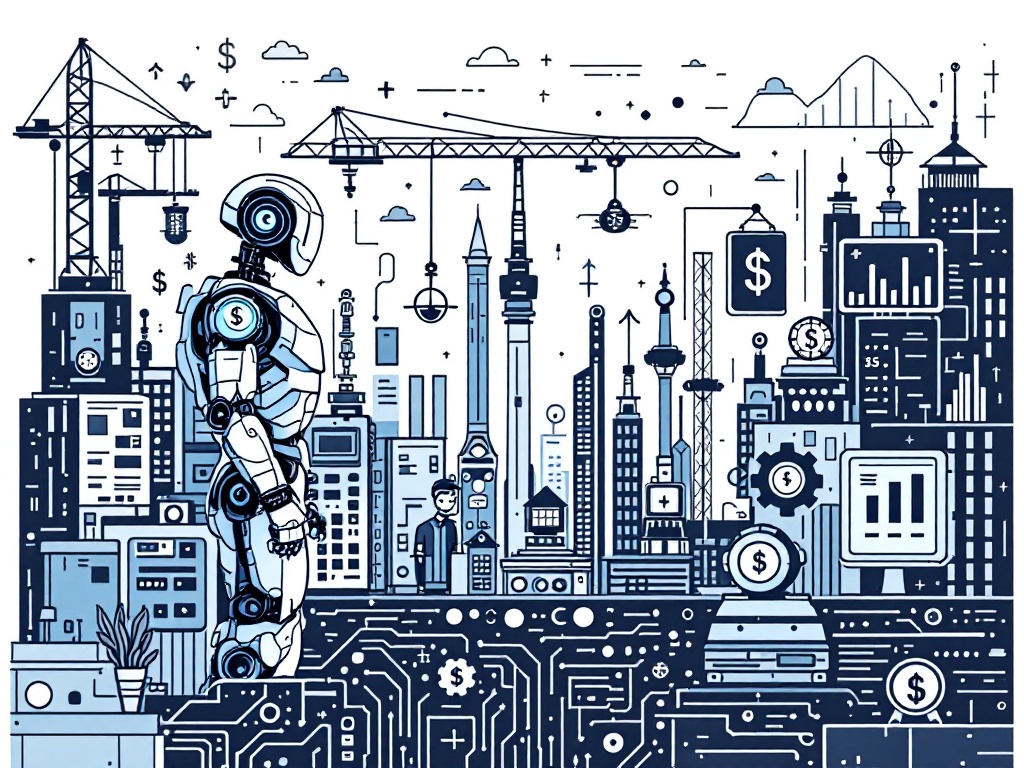2025 Manufacturing Revolution: AI and Digital Tech Lead $94B Investment Wave

United States, Wednesday, 20 November 2024.
U.S. manufacturers are showing unprecedented confidence with 93% planning major growth initiatives. A groundbreaking survey reveals 94% will increase technology investments over the next three years, focusing on AI integration and digital transformation. Despite supply chain challenges, manufacturers are prioritizing smart automation and sustainability, marking the largest technological overhaul in decades. Key concerns include rising transportation costs and skilled worker shortages, but innovation investments are expected to drive significant productivity gains through 2025.
Strategic Technological Investments
The Deloitte 2025 outlook highlights a transformative phase for U.S. manufacturers, as they gear up to tackle persistent challenges with targeted technological investments. Emphasizing digital and data enhancements, the industry aims to revolutionize operations by integrating AI-driven solutions and smart automation. This strategic pivot is not just about maintaining competitiveness, but also about addressing the ongoing skills gap and optimizing supply chain efficiency to ensure sustained growth.
Addressing Economic and Supply Chain Challenges
Despite the optimism surrounding these technological advancements, manufacturers face notable hurdles such as rising transportation costs and a scarcity of skilled workers. These issues have been underscored in surveys by Eide Bailly and Manufacturing Dive’s studioID, where 52% of executives expressed concerns about supply chain disruptions, and 41% reported transportation costs as a significant challenge[1]. The focus on digital transformation is thus seen as a critical pathway to mitigating these operational bottlenecks.
The Role of AI and Data Analytics
The push towards AI and data analytics is reshaping the manufacturing landscape, with 94% of surveyed manufacturers planning to enhance their technology stack over the next three years[1]. This involves significant upgrades to existing systems, such as ERP and MES, and a deeper integration of advanced analytics. The adoption of AI is expected to streamline processes, improve decision-making, and ultimately lead to greater productivity across the sector. As Dave Glennon of Eide Bailly notes, companies recognize that lagging in technological adoption equates to falling behind in the market[2].
Sustainability and Future Outlook
Sustainability remains a pivotal aspect of the manufacturing sector’s evolution. The emphasis on reducing carbon emissions and enhancing energy efficiency aligns with broader industry trends towards environmental responsibility. Reports indicate a strong commitment from CEOs to address climate change through innovative practices, as seen in initiatives like Newmont’s investment in electric mining vehicles and the broader transition to renewable energy sources[3]. This sustainable focus not only addresses regulatory pressures but also positions manufacturers for long-term viability and competitiveness.
Conclusion: A New Era of Manufacturing
As the U.S. manufacturing sector embarks on this ambitious journey, the integration of digital technologies and sustainable practices promises to redefine industry standards. The investments laid out for the next few years will likely lead to a more resilient, efficient, and environmentally conscious manufacturing environment. While challenges persist, the sector’s proactive approach to technological and sustainable growth underscores a bright future, with significant productivity gains anticipated through 2025.